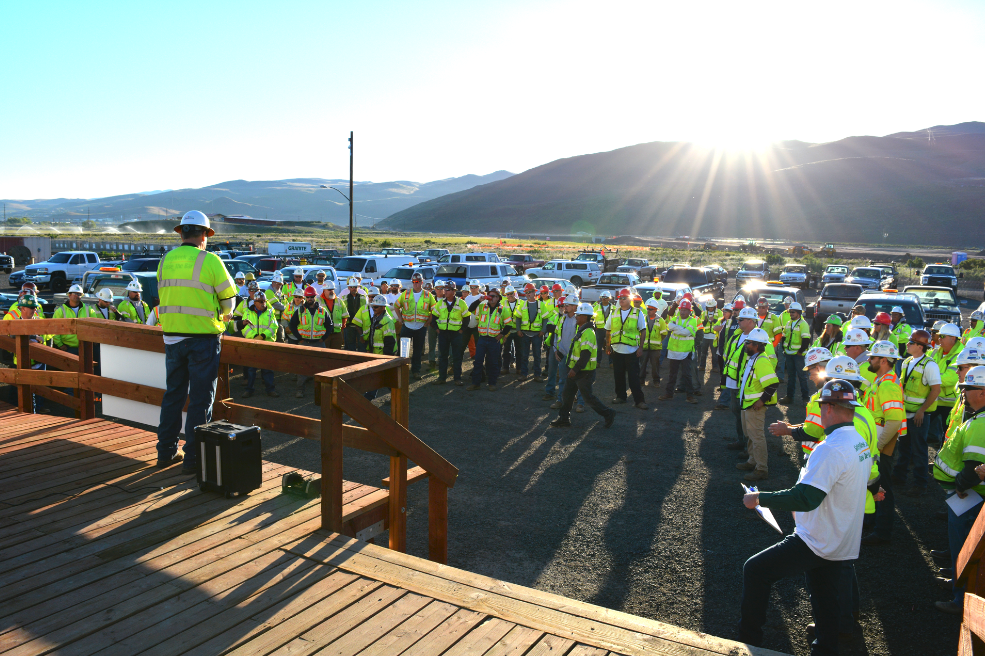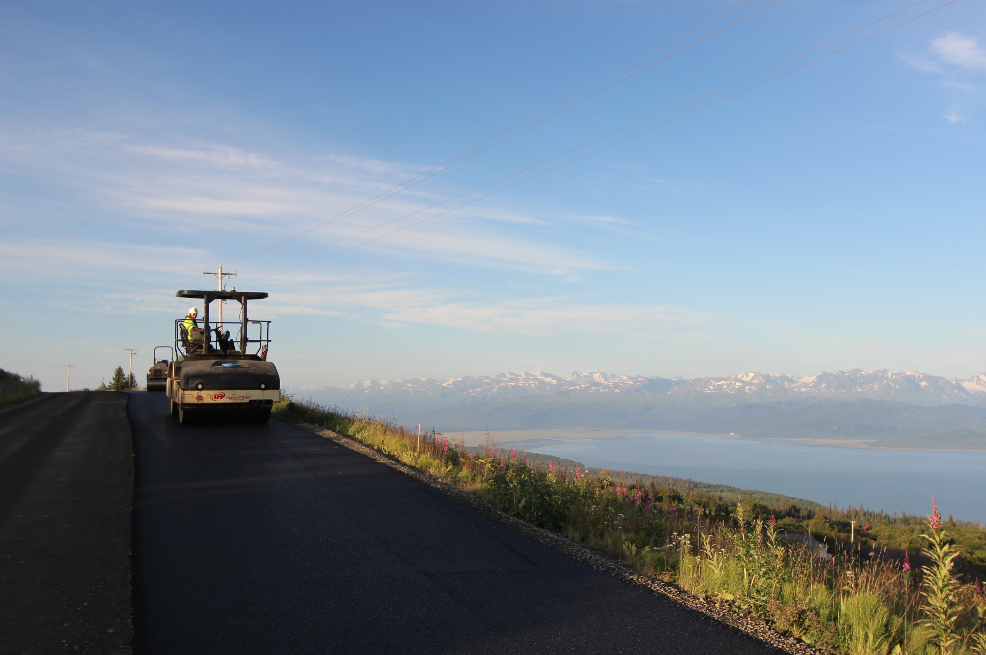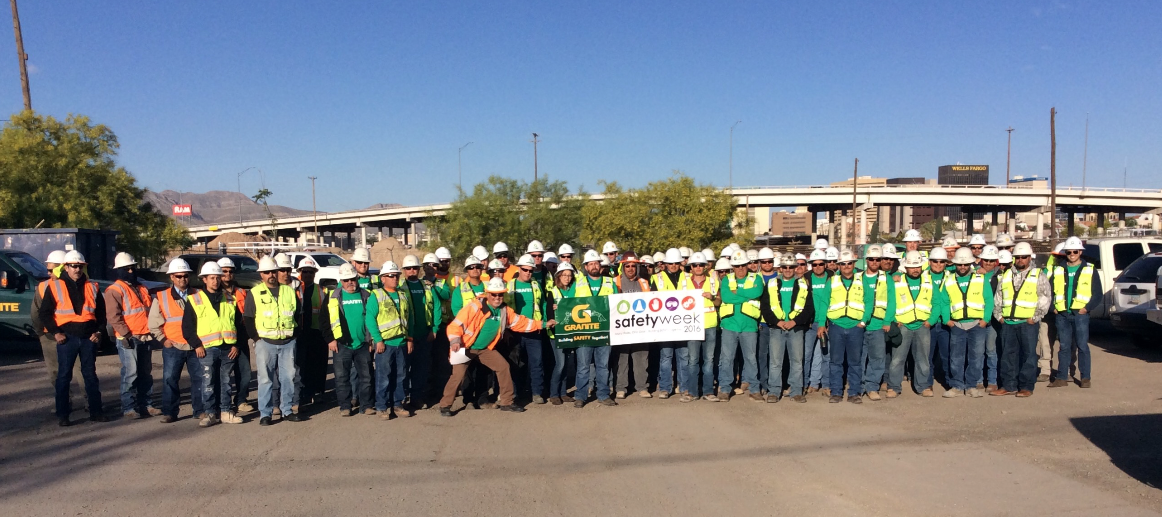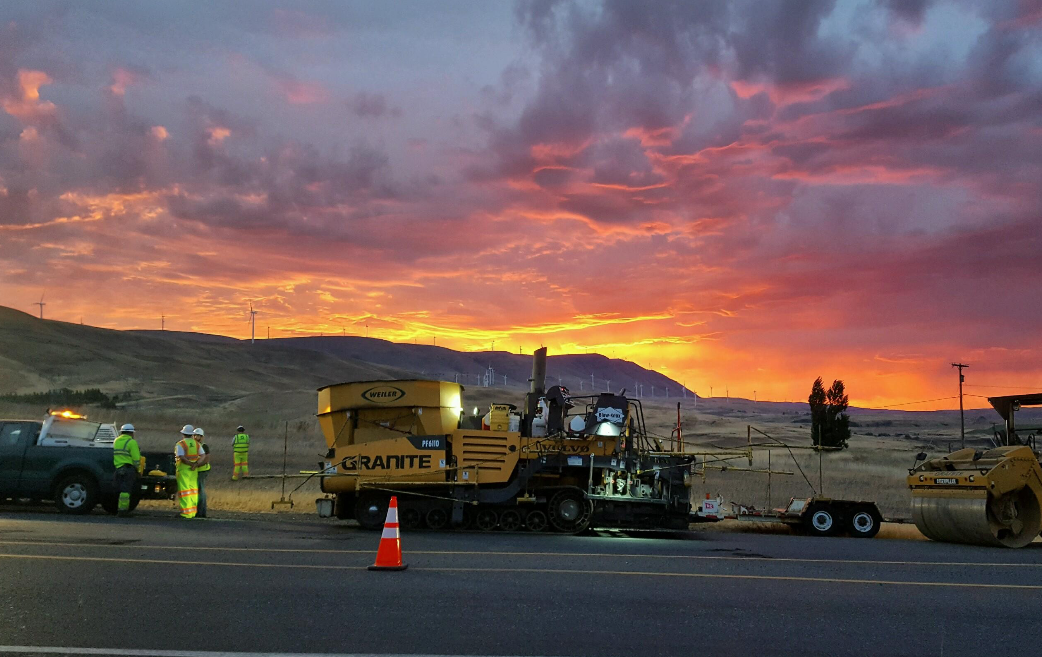Granite Construction Makes Safety About Stories, Not Statistics
BY AsphaltPro Staff

Anyone who has ever had a close call when it comes to safety has a story to tell. Although most of us choose to share these stories only with our close friends and family (and maybe our crew), Granite Construction company believes every story can be a learning opportunity for the entire company.
The Watsonville, California-based company gathers stories every year from its nearly 4,500 employees around the United States of incidents, near-misses and simple reasons to stay safe out there. But this is just a part of Granite’s safety program. For them, safety is part of company culture, from the top to the bottom.
That’s why Granite was recognized with an honorable mention for its outstanding corporate worker safety program by the American Road and Transportation Builders Association at the end of 2016. In fact, Granite has won the award three of the past five years.
“I think we’ve been on the leading edge of safety for a long time,” said Granite’s Director of Safety Bob Johnson. “We got away from rules and regulation-based safety—not that you don’t follow rules—but we’ve started down the path of behavioral safety. We promote a safety culture rather than a ‘do it or you’re fired’ culture.”
In order to even be considered, every applicant has to meet certain insurance EMR and OSHA recordable rates. From there, two finalists are selected to present to ARTBA’s panel of judges.
“In the construction industry, most incident rates are around three or four, but Granite’s is a 1.2,” Johnson said. “That’s just a number to get you in the running. What makes us successful, though, is what got us to that number.”
It’s apparent that ARTBA agrees.
“Granite in particular has always stood out [in this contest] because they innovate and they’re never happy with where they are,” said ARTBA Senior Vice President of Safety Brad Sant. “They’re always looking for new ways to be better. That innovation is one of the most important elements demonstrating their ongoing commitment to safety.”
Johnson said Granite’s employees are the “nuts and bolts” of what makes the company’s safety culture succeed. “We take care of them and we coach them on how to take care of each other.”
Ultimately, he said, it comes down to three things the company believes in, from the top to the bottom:
- Make it personal.
- It’s about stories, not statistics.
- People, not projects.
Stories, Not Statistics
Several years ago, Granite started asking its employees to take every safety issue personally.
“Over the past several years, we started down the path of relationship-based safety, taking it beyond behavior-based safety,” Johnson said. “If we do that, we begin to see the human side of safety.”
To change every employee’s perspective on safety, Granite began by simply telling stories: success stories, of course, but also stories of failures.
“We get our people talking about more than our OSHA rates,” Johnson said. “Putting those on the wall doesn’t motivate people, but when they hear a fellow worker talking about how something affects their life, it’s much more motivating.”
Over the years, Granite has compiled hundreds of these stories. They have an annual contest to collect 60-second videos of their employees sharing safety stories, tips and reasons they want to stay safe on the job at the end of every year.
“They can be a guy on a crew talking about how they hurt their finger one day, but it could also be a story of something really tragic that happened over the year,” Johnson said.

Granite began collecting videos of stories from employees that motivate others to keep safety in mind on the job site.
For example, Johnson recalls a story they received from an employee whose son-in-law was killed in a construction accident more than a decade ago at a different company.
“He wrote this unbelievable story in print that we sent out to everyone,” Johnson said. “When you hear the stories of how it affects people going forward, everyone takes that home with them and it lasts.”
Other times, the videos are more lighthearted. “In another video a guy wrapped his kids in bubble wrap.”
Granite distributes some of these videos throughout the company. Others stay regional or remain with just one crew. Those sent out to everyone are shared in the company’s Monday Minute emails and shared in each crew’s safety meetings.
“We’re very mindful of what the person who told the story wants,” Johnson said. “Some of them are given to us in confidence, so we always check with everyone before sending it out.”
For its video contest, Granite offers a first place prize of $1,000, based on employee votes. However, Johnson said, it isn’t really about the incentives.
“We don’t do a lot of incentive-type programs,” Johnson said. “It’s not like we give you a ball cap if you don’t get hurt. We know if we teach it right, people will do it for the right reason.”

The California-based company has nearly 4,500 employees around the United States.
People, Not Projects
Granite also makes a point to use peoples’ names for every incident.
“We don’t just say a laborer got hurt in New York,” Johnson said. “We need to know that laborer’s name. He had a name when he left his house that morning so he needs a name at Granite. It’s a small thing, but we really believe people are people.”
Of course, they also participate in all the common safety programs, like new hire orientation, regular safety meetings and daily toolbox talks, and encourage employees to speak up if they see something wrong.
“We really push the message of you have the right to speak up, and that’s what we want them to do,” Johnson said. But he knows safety has to be important to everyone in the organization, whether at the job site or in the office.

For Granite, safety is a part of the culture year ’round, not just during Safety Week.
“It starts at the top,” Johnson said. “Our President Jim Roberts is a big backer of all our safety programs, and every manager at every level echoes that mentality.
“If I’m going to give a shout-out, it’s to all the people that work so hard for Granite every single day,” he continued. “They have nothing but a plastic cone between them and death, with 18-wheelers flying by. That’s who deserves the credit.”
Johnson recalled last year’s corporate leadership conference of a couple hundred leaders within the company.
“We had a couple of our people come up and tell stories about their involvement in a very tragic accident that I can’t discuss because it only happened a couple of years ago, and the room was almost entirely in tears,” Johnson said. “That really kicked us off to do this right. That was really powerful.”

